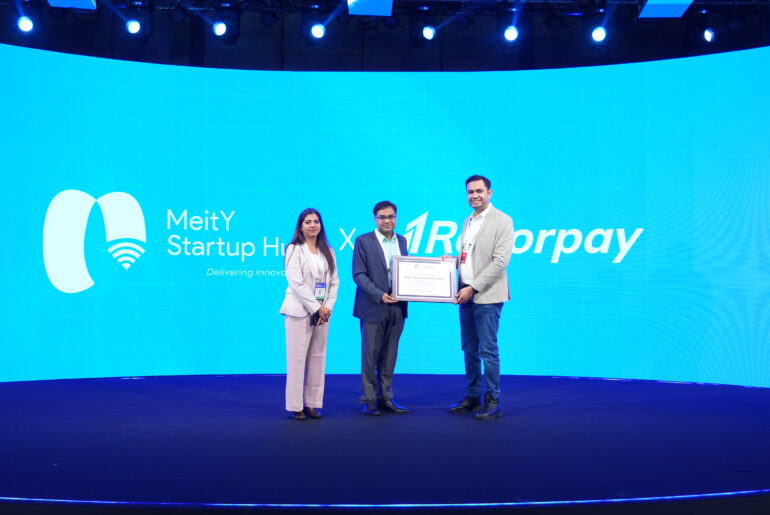- Hiring of permanent employees dips by 61% during this period while salary payouts to gig-workers increase by 153%
- Despite lower hiring, total salary spends on existing full-time employees increased by 64.7%
- However, these rising salaries are not distributed equitably across genders especially in the top salary bracket
INDIA, Bangalore – 31st Oct 2022: The changing dynamics of the startup ecosystem has resulted in massive shifts in hiring patterns in the last twelve months. The Annual Insights Report by RazorpayX Payroll, the business banking platform of Razorpay, has derived interesting insights by analyzing payroll data from Oct 2021 to September 2022 of 25,000+ employees across 1000+ Indian startups from 20+ sectors who currently use RazorpayX Payroll. On one hand, facing capital crunch, startups are experiencing the great normalization of hiring, limiting their hiring of CXOs and permanent employees while on the other, startups are increasing payouts to existing employees.
Here are some top insights from the report:
- Indian startups see The Great Normalization: With many startups facing the chills of funding winter, most of them are cutting back on their hiring. Hiring of new permanent employees has dipped by 61% as compared to Oct 2021. The dip in hiring is seen across seniority with the CXO hiring noticing a massive normalization, dropping by 93% since Oct 2021. While hiring across departments has decreased, hiring in technology seems to have been least impacted. Technology-related jobs have managed to marginally increase their contribution to the overall workforce by 4% while the hiring trend is slowing down in general.
- Gig, the new norm of work: While hiring permanent employees has seen a fall, giggers seem to be the preferred way to go for startups. Payments to gig-workers have seen a growth of 153% since Oct 2021. The total number of enterprises who have shifted to a semi-gig workforce model has increased by 15% since Oct 2021. Semi-skilled gig-workers who are paid less than INR 20k have the highest contribution to the entire pool of gig-workers being hired by startups, followed by those who earn anywhere between INR 20-40k. However, these workers are one of the slowest growing cohorts growing at 26% and 52% respectively. However, skilled gig workers who earn between INR 85K to more than 150K, although contributing the least to the overall pool, have seen the highest growth in the last one year. Gig-workers who earn between INR 85K-150K have grown by 62%, while gig-workers who earn more than 150K grew by 69% in the last one year. This goes on to show that gig-workers are gaining more popularity among startups than hiring full-time employees.
- Despite a drop in hiring, salary spends is on a rise: While overall hiring has decreased, salary spends have increased by 64.7% since Oct 2021. Contrary to previous trends, salaries across different salary levels have been rising gradually but not exponentially, at an average of 12%. However, growth in salaries is very different across different scales of gig-workers. While the median salaries of gig-workers have increased by only 19.9% in the last one year, salaries in the 99th percentile of gig-workers grew by a whopping 58.3%
- Rising salaries are not distributed equitably across genders: While salaries are rising, they are not distributed evenly across genders. A gradual growth in the salaries is seen in both genders, however, growth in salaries earned by males is higher at 29% as compared to 22% by women. Moreover, salary gaps seem to get wider, the higher one goes up the salary bracket. While the median salary gap between men and women was 46% in the last one year, the salary gap between the two genders in the 95th percentile salary bracket was a whopping 70%. This salary gap is accompanied with a lower participation of women in the workforce – for every 2 men that were hired in the last one year, 1 woman was hired.
Shashank Mehta, Vice President and General Manager of RazorpayX said, “The Indian startup ecosystem has been facing headwinds in the past few months but they have been nothing short of resilient and adaptive to such a dynamic environment. The data from RazorpayX Payroll indicates that startups have been optimizing their workforce by building leaner yet stronger teams, keeping in mind the macro-forces. Moreover, compensating their existing employees for their contribution towards building sustainable runways in the long run shows that companies have been looking inwards, alongside the increasing adoption of giggers. Coupling this trend with rising salaries across key roles, we will soon see a new era of work among startups.”
“However, the existing gender gap in terms of workforce ratio and pay still remains a challenge every startup needs to counter on priority. It is only through equitable participation and pay can we make our workforce truly productive in every sense,” he added.
RazorpayX currently serves over 30,000 businesses and in the last year has processed UPI transactions to over 20% of all UPI registered users in India. The neo-banking platform has seen over 200% growth in its Payouts business. RazorpayX Payouts helps businesses to move money at scale across customers, vendors, suppliers, and partners via API-enabled banking. The platform has disbursed payouts with an annualized money movement of over $30+ billion. In addition to Payouts, RazorpayX has witnessed similar growth across its other products such as Vendor Payments, Tax Payments, Payroll, Payout Links, and Corporate Credit Cards.
***




